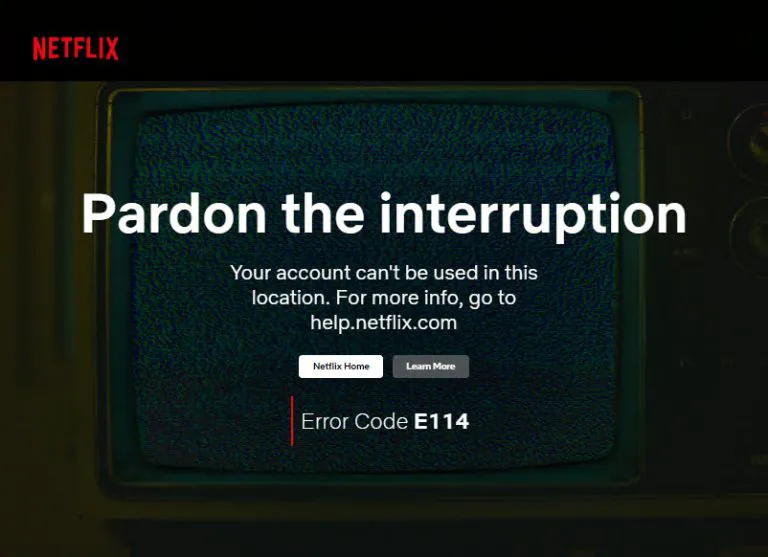In the hit IT comedy Silicon Valley, CEO Gavin Belson starts his day with a quick Hooli Search – Silicon Valley‘s version of Google – to see what the world is saying about him. And let’s face it – even us regular folks are curious about our own Google search results. Why? Well, it’s all about wanting to know what others see when they search for our names. But if you’re often disappointed with a barrage of irrelevant pages and name twins, fear not! You just haven’t mastered the art of self-googling. So, let’s dive into some pro tips to reclaim your online presence.
Table of contents
Why should you Google® yourself, anyway?
Before meeting someone new or applying for that dream job, chances are, they’ve already Googled you. Imagine striking up a conversation with someone, only to find out they’ve already formed an opinion of you based on old or inaccurate info they found online.
That’s why Googling yourself is a smart move. When Googling yourself, you may be shocked by what you find, such as some inappropriate or outdated content that could tarnish your reputation or privacy (including things you’ve shared or created in the past). You may even stumble upon websites that are gathering and sharing your personal information without your consent.

By being aware of this information, you can take steps to address any concerns promptly. You may be able to remove undesirable content or contact websites to request they stop sharing your personal information.
So, Googling yourself isn’t just about inflating your ego; it’s about digital self-care and strategic personal branding. It’s about taking control of your online reputation, ensuring the information out there is up-to-date, and accurately reflects the real you.
How to Google® Yourself Correctly
If you want to know what’s out there about you online, the simplest way is to search your name on a search engine like Google. To make your search more efficient, here are some tips for you:
- Set your browser to incognito mode to ensure that your search results won’t be customized by your location or search history.
Here’s how to do it:
Open Chrome®, tap More > New Incognito Window.
> New Incognito Window.
A new window will appear. In the top left, you’ll see an Incognito icon .
. - Put your search terms in quotation marks for more accurate results, e.g., “Jane Smith”.
- Search for your full name, nickname, username, or screen name. If you have a common name, try adding a middle name to your original search, e.g., “Jane A. Smith”.
- Run a Google Images search on your name to see if there are any pictures of you.
- Search your home addresses, phone numbers, and email addresses to see what comes up.
- Search for your name plus other details, like the city you live in, the school you attended, the company you work for, etc. For example, “Jane Smith” Chicago.
- Check a few pages to uncover the results that show up.
- Use different search engines like Yahoo®, Bing®, or DuckDuckGo® to get the best result.
If Google doesn’t turn up what you need, there’s a better way to search yourself that can reveal far more than Google.
Find Information That Google Can’t
Beyond traditional search engines like Google, there are dedicated people search engines that can aggregate vast quantities of people-related data and assemble it into easy-to-read profiles. With just a name, phone number, address, or email address, you might be surprised at how much data is out there on you!
Here are some best people search engines we have tested and would like to recommend:
Option 1: BeenVerified
Founded in 2007, BeenVerified is a people search engine that provides a searchable database of publicly available information. You can search a name on this site to locate addresses, phone numbers, email addresses, relatives, social media accounts, and much more. You can also run searches on phone numbers, email addresses, addresses, social media usernames, VINs or license plate numbers.
To search for yourself on BeenVerified:
- Go to BeenVerified.
- Enter your name, city, and state then hit SEARCH.
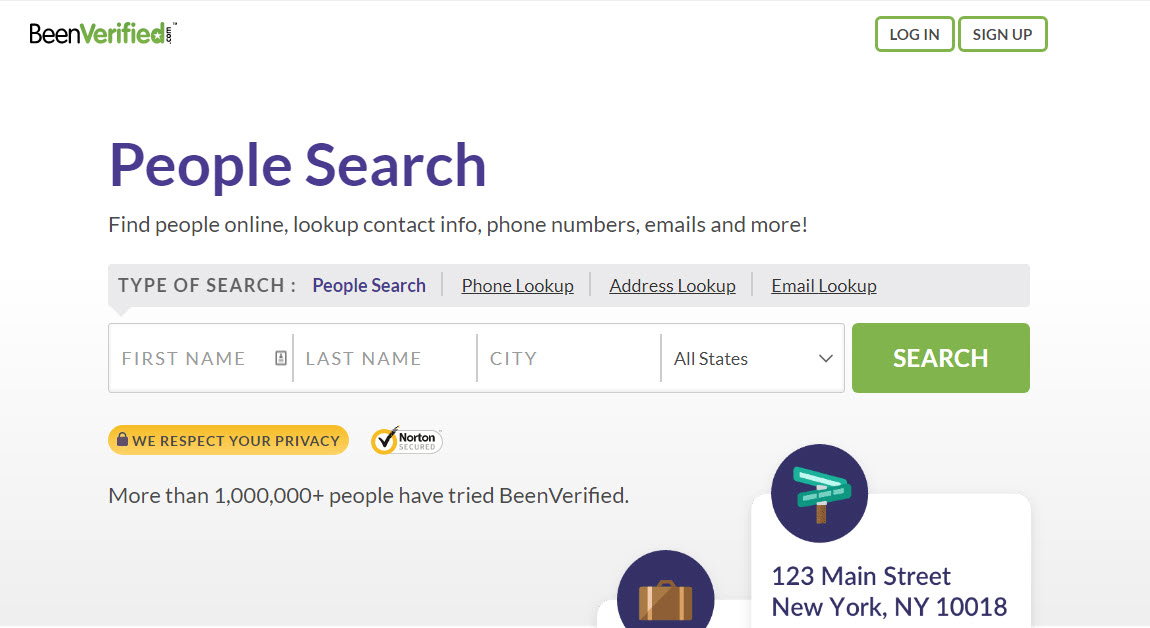
- Wait a few seconds for BeenVerified to scan through its database. Once done, you’ll see a detailed report like the following.
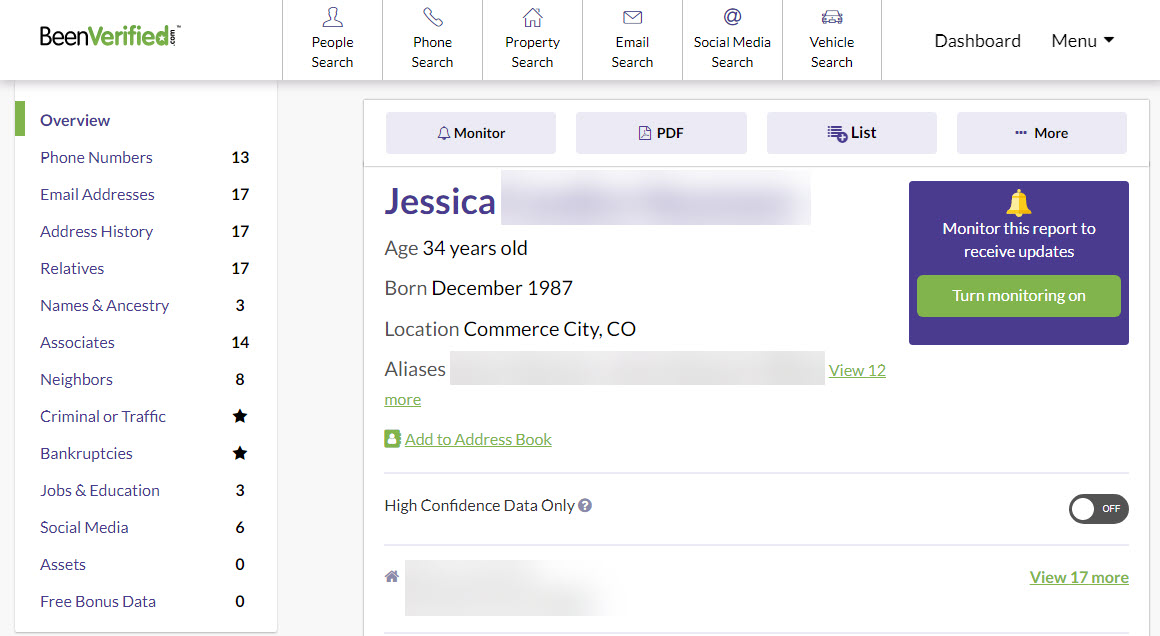
Option 2: TruthFinder
TruthFinder is one of America’s most popular people search engines. It can help you learn more about the people in your life through background checks, reverse phone number lookups, reverse email address lookups, and reverse address lookups. With TruthFinder, you may find public records such as contact information, social media accounts, education and employment history, criminal or traffic records, and more, depending on the type of search type you use.
To run a background check on yourself:
- Go to TruthFinder.
- Type your name, city, and state. Hit SEARCH.
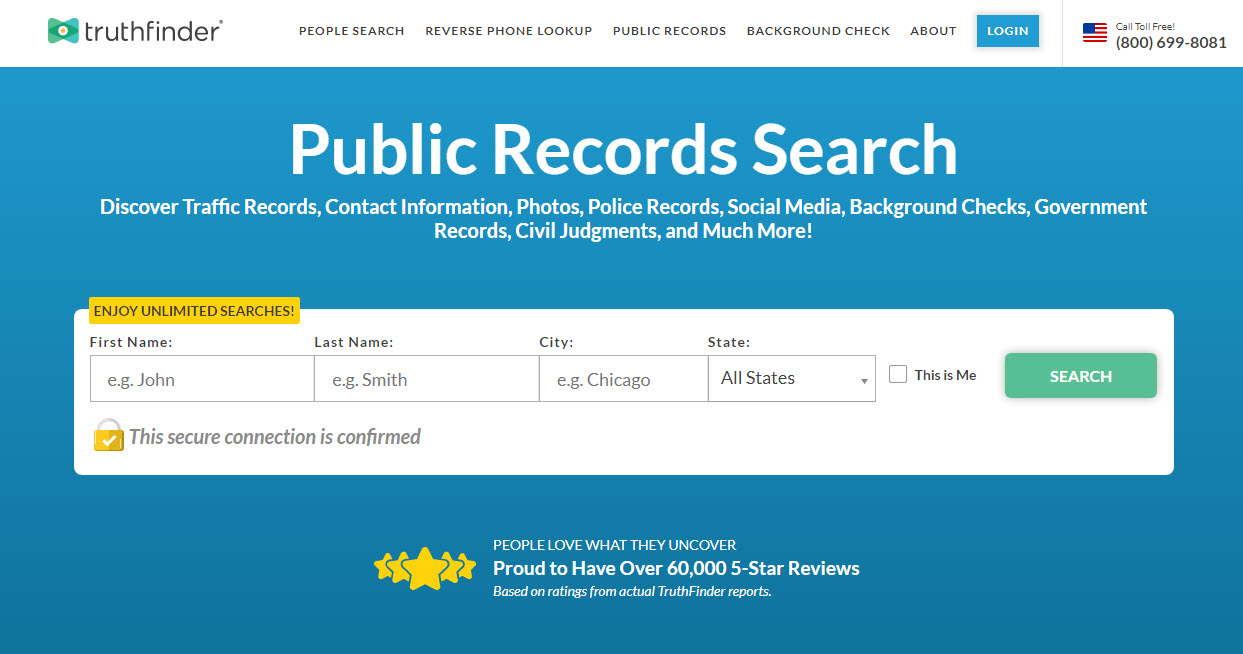
- Wait for TruthFinder to comb through a wide range of public records sources to generate search results of detailed background reports. In order to view a report, you will need to purchase a membership plan that best fits your needs.
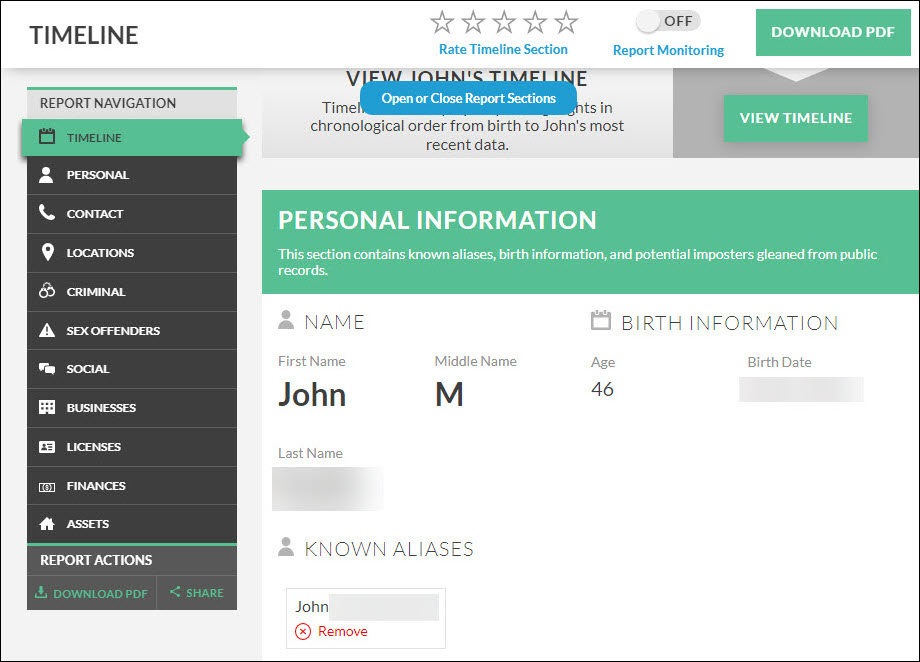
NOTICE: The above image is from a sample TruthFinder background report. Actual TruthFinder reports may contain more or less information.
Option 3: Spokeo
Spokeo is another famous people search engine that organizes information about people into simple and comprehensive online profiles that are accessible to consumers, businesses and nonprofits. With Spokeo, you can search for almost anyone in the United States by name, phone number, address, email, or username.
To look up yourself on Spokeo:
- Go to Spokeo.
- Enter your first and last name into the search box and click SEARCH NOW.
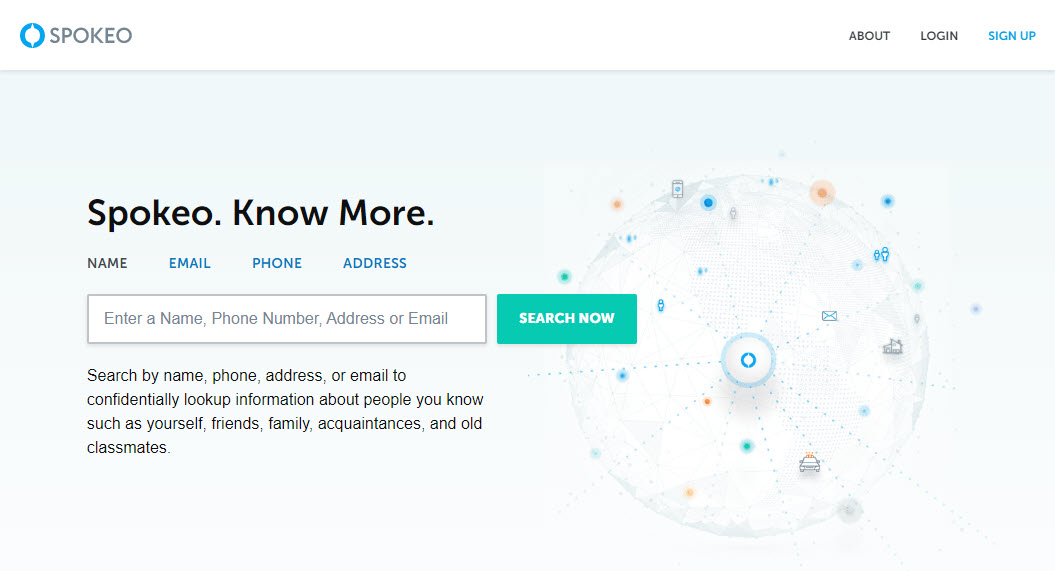
- Wait a few seconds for Spokeo to search its database. Once the process is complete, it will show you an easy-to-read report.
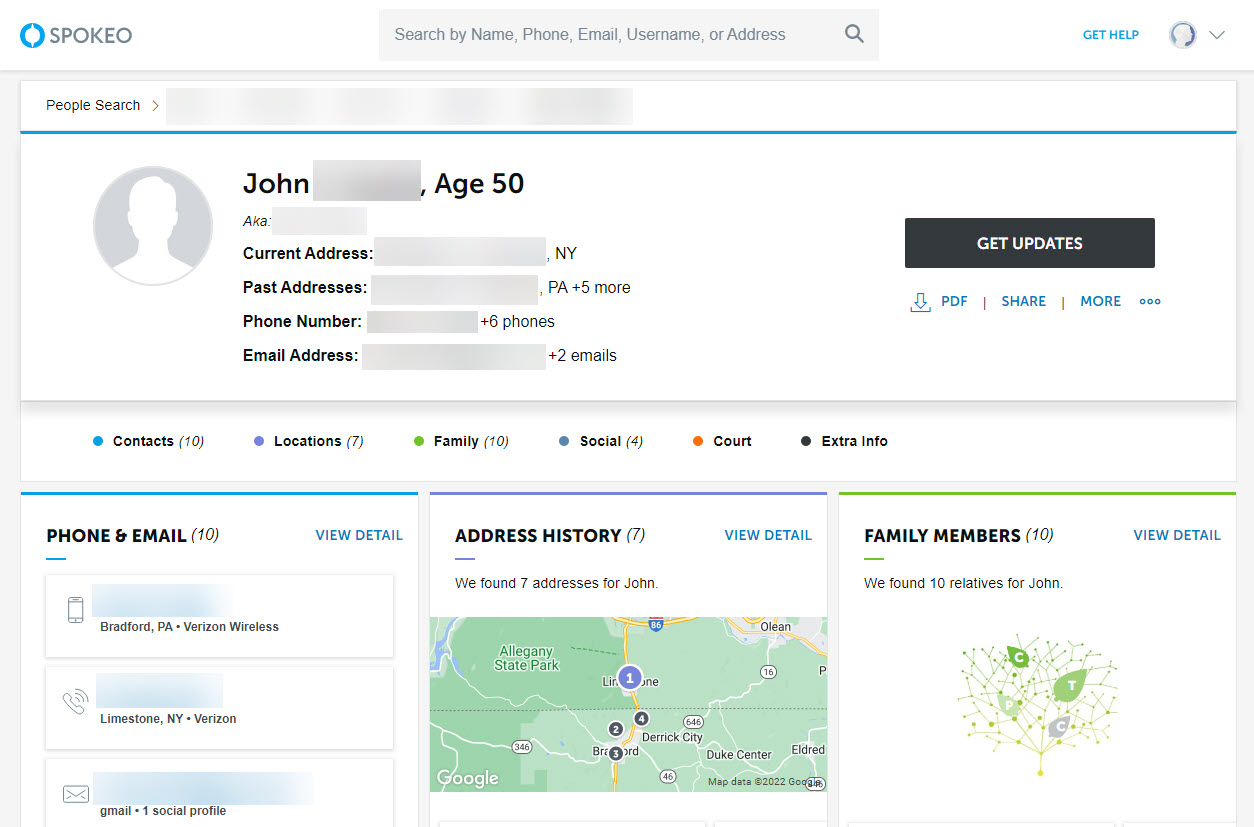
Take Control of Your Online Presence
When you search for yourself, you may find some unwanted information that you don’t want other people to see. To take control of your online presence, here are a few ways you can follow:
- Set a Google alert for your name. By doing this, you’ll get a notification if anything mentioning you appears online.
- Check your privacy settings on social media to ensure you’re protecting the content you share.
- Delete old accounts that you no longer use.
- Remove unwanted content. If you find some sensitive information that you can’t remove yourself, you’ll need to contact the site’s webmaster and ask them to remove it for you. If you are unable to have a website owner remove the content from the site, you can also ask Google to remove this. Click here to see what Google is willing to remove.
- Opt out of people search sites. These sites include Whitepages®, Intelius®, Spokeo®, MyLife®, etc. To remove your information from those websites, check out its opt-out page or “Do Not Sell My Personal Information”. It can be a huge task to opt out of these sites one by one. If you don’t have time and patience, consider using a paid service (like DeleteMe) to do the job for you.
Summary
Everything you do online contributes to your online reputation. Your online reputation matters, as it could affect how people think about you, especially your family, friends, your coworker, or your new date. To manage your online reputation, the first step is to find out what’s out there about you. You can get started by Googling yourself. Try it now!
All product names, logos, brands, trademarks and registered trademarks are property of their respective owners.
Credit: Featured Image by Pixabay
Contributors






![[5 Ways] Free phone lookup with name | 100% Legit [5 Ways] Free phone lookup with name | 100% Legit](https://www.supereasy.com/wp-content/uploads/2021/10/online-dating-scam-768x442.jpg)






